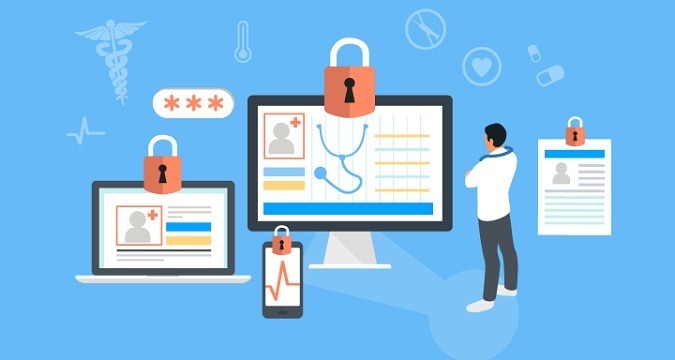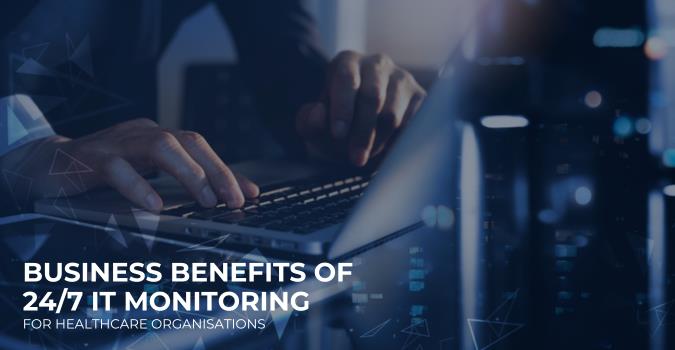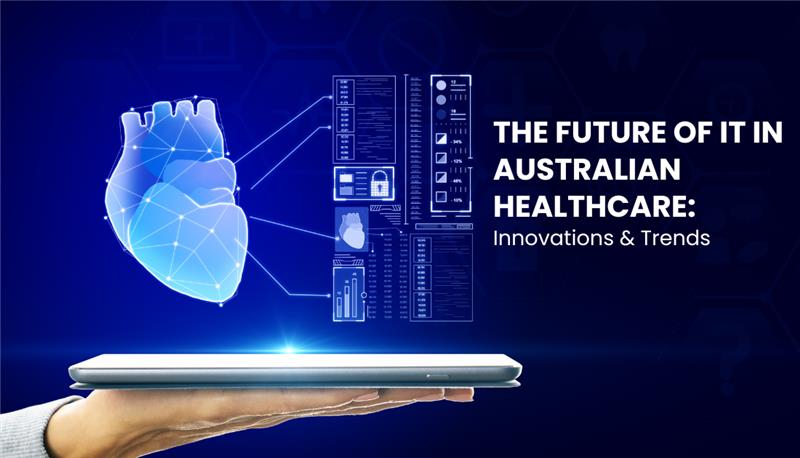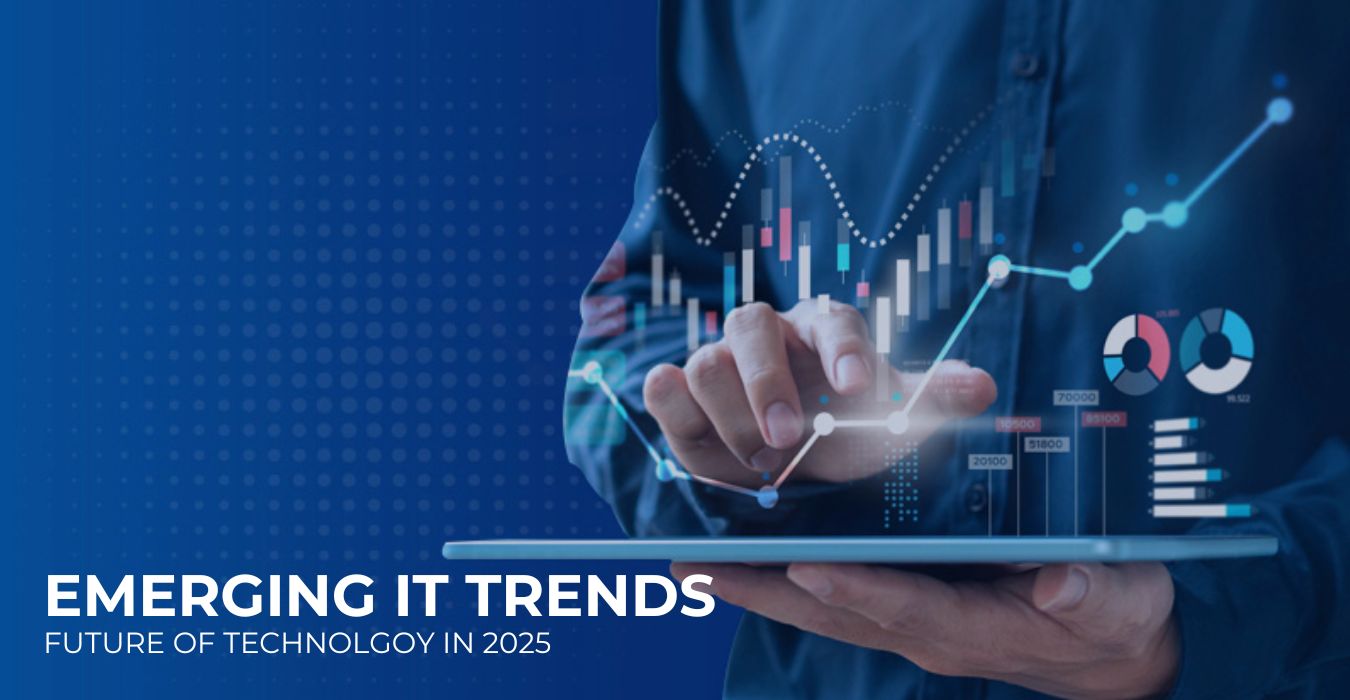Healthcare organisations rely on robust IT systems to manage patient records, facilitate telemedicine and support…

Why Do Healthcare Practices Need To Take Cybersecurity Seriously?
Australian Healthcare Practices are widely using electronic medical technology. It has enhanced clinical outcomes and patient care. However, healthcare technology is exposed to cybersecurity threats as it is connected to the existing IT networks. Therefore, medical practices should implement cybersecurity solutions to secure their healthcare data and internet-connected devices.
Healthcare Sector: Favorite Target of Cyber Criminals
Being an enormous source of critical data with weak defenses, Hospitals and healthcare centers are an attractive target for cybercriminals. The defense starts with an effective cyber security risk assessment for healthcare practices.
This risk assessment must be conducted by IT professionals with expertise in cybersecurity. A good cybersecurity provider in Australia can do this efficiently. Healthcare systems should assign this task to a professional cyber security services company.
Cybersecurity Dangers for Healthcare Organizations
Common cybersecurity threats for healthcare systems include ransomware attacks, information theft, attacks on implanted healthcare devices. Moreover, one cybersecurity incident can result in a long-time reduction of patients’ trust, impaired patient care, and loss of human lives.
High Usage of Linked Technology
Practices now use more connected technology than ever before. This helps in providing effective patient care to people having chronic diseases and this technology provides many ways to connect to healthcare gadgets.
Furthermore, these inter-connected medical devices are easily accessible for users’ convenience. But this gives criminals a chance to access them too. What’s more threatening is that if an attacker somehow accesses one device, they can also access larger hospital networks avoiding the firewalls.
In many cases, healthcare breaches go unnoticed for months after the cyber-attack which makes practices even more vulnerable. Doctors and healthcare workers now aim to care for patients even outside the hospital premises. It leads to the usage of more devices to continually monitor patients in and out of medical settings.
On top of that, healthcare settings are widely using mobile consumer devices which are used for both medical and general purposes. This poses a great risk to sensitive healthcare information.
Cybersecurity is important for effective patient care
As the world’s population is rising rapidly, doctors and medical staff can’t keep working on papers and they have less time to be physically present for each patient whenever they need it.
That’s why they have started using cloud technology and database systems to handle medical data. These databases are the biggest asset to the healthcare industry and better cybersecurity is crucial to secure them. Otherwise, patent care would be seriously impacted.
- Medical Data and Cyberwar
As we all know experts have been warning that future wars will be fought through cyber breaches. In the last ten years, there have been multiple incidents that showed hi-tech cyberwar campaigners can potentially use healthcare technology to further their aims.
Terrorists or an enemy group from a foreign country could access medical devices and disrupt healthcare by denying access to them. They could also target patients via their healthcare devices or can gather sensitive data. In a nutshell, healthcare has the potential for monetary or political gain, therefore political activists, hacktivists, and cyber attackers can attack them.
- Usage of Legacy systems
The major problem is that medical practices adopt the latest technologies but don’t update their systems and networks to support them.
Many medical practices are still using legacy systems like Windows XP. Consequently, cybercriminals and malware easily bypass detection. A classic example of this is the notorious WannaCry attack.
Additionally, healthcare IT staff can’t access the internal software in those devices because they are copyrighted. Only producers can set up security systems in them and only they can maintain them which they often neglect.
- Lack of funding
Healthcare practices are focusing more on bringing new technology in but aren’t designating appropriate budgets to secure them. These latest medical devices need constant updates and security.
The Healthcare industry lacks cybersecurity proficiency which stems from an overall lack of technology. Cybersecurity skills are high-priced and far from the reach of many small and medium-sized medical settings.
Not all healthcare settings have huge amounts of money to spend on the latest methods and technologies needed for up-to-date cyber security. Especially, new clinics and hospitals often don’t have professional and experienced IT staff. Many rely on managed IT services providers who manage cybersecurity for a nominal fee.
It’s high time, the Australian healthcare sector starts taking cyber security seriously. Healthcare data is like a treasure for attackers because it’s significantly more valuable than other information. A complete set of healthcare credentials can be sold for over $1000 on the dark web. To save this data that has a great monetary value, we need to invest a good amount of funds in cybersecurity.
Bottom Line
Doctors, healthcare professionals, and workers should improve their security workaround behaviors. As medical practices have swiftly adapted to interconnected technology and digital medical records, they must understand the critical nature of medical data and systems.
If you are running a medical practice in Australia and worrying about the security of your medical devices and patient data, don’t hesitate to contact our Cybersecurity Expert for free consultation and support.
Also Read:



